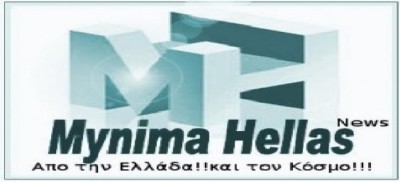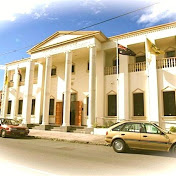
Tony Anamourlis delves into the agreement’s impact on dual citizens
With increasing fiscal leakage due to tax evasion and tax avoidance, the OECD and its member states which includes Australia and Greece continues to focus comprehensively on global strategies to reduce the incidence of tax evasion and tax avoidance and restore government revenue by preventing fiscal leakage. In particular, the OECD’s work in developing the Global Forum on Tax Transparency and Automatic Exchange of Information, in conjunction with their work on base erosion and profit shifting, reflects a global effort to bring the rules of international tax into the 21st century.
In these circumstances, a wealth of work has been advanced in recent times by the OECD and its member states. In the context of Greece, a recent convention was signed which included the signatories of Greece and Australia relating to the Mutual Administrative Assistance program in Tax Matters, which enables both of these countries to work more closely together to combat tax evasion and or tax avoidance.
In addition, Greece has now advanced its tax protocols with the assistance of the OECD by entering into a Multilateral Competent Authority Agreement on the automatic exchange of financial account information to enable both Greece and Australia and other tax jurisdictions to combat tax evasion and or tax avoidance.
What changes?
Greece signed the Convention on Mutual Administrative Assistance in Tax Matters on 22 February 2012. This is a multilateral agreement that was established jointly by the Council of Europe and the OECD and is open for signatures to all countries. The Convention promotes international co-operation in the assessment and collection of taxes.
As taxpayers increasingly function on a global basis, tax authorities are moving from bilateral to multilateral co-operation and from exchange of information on request to more effective forms of collaboration. The Convention is an effective and hands-on instrument to help tax authorities in their everyday work.
At a time when Greece was looking to shore up its economy with other European countries and other participants, the Convention allows Greece to work more closely with other countries, such as Australia to combat tax avoidance and evasion.
So far signatories to the Convention are: Argentina, Australia, Belgium, Brazil, Canada, Denmark, Finland, France, Georgia, Germany, Greece, Iceland, India, Indonesia, Ireland, Italy, Japan, Korea, Mexico, Moldova, Netherlands, Norway, Poland, Portugal, the Russian Federation, Slovenia, South Africa, Spain, Sweden, Turkey, Ukraine, the United Kingdom and the United States.
In these circumstances, to further attack offshore tax evasion and tax avoidance, Greece’ parliament has implemented Greek legislation relating to the automatic exchange of financial account information which will further strengthen its ties between the Australian and Greek governments and other competent tax jurisdictions worldwide.
Accordingly, in order for Greece to bring its tax rules in line with OECD standards, Greece’s legislators have recently implemented Greek legislation to incorporate the OECD’s Multilateral Competent Authority Agreement relating to the automatic exchange of financial information.
What this means for non-residents living outside of Greece
Law 4428/2016 incorporates into the Greek legislation the OECD Multilateral Competent Authority Agreement (‘the Agreement’) on the automatic exchange of financial account information.
The automatic exchange of information constructed within the body of the agreement means that the Common Reporting Standard (CRS) is the single global standard for the collection, reporting and exchange of financial account information on foreign tax residents. For example, banks and other financial institutions will collect and report to the Australian Tax Office (ATO) financial account information on non-residents.
The ATO will exchange this information with the participating foreign tax authorities of those non-residents in Greece. In parallel, the ATO will receive financial account information on Australian residents from other countries’ tax authorities, such as Greece. This will aid to ensure that Australian residents and Australian non-resident Greeks with financial accounts in other countries are complying with Australian tax laws and with other international tax laws and act as a deterrent to tax evasion and tax avoidance.
Generally, the CRS requires financial institutions in each CRS contributing country including Greece and Australia to request the tax residency status of their taxpayers and provide information to their local tax authority about any accounts held by tax residents of other countries. The CRS describes the information that will be exchanged, the different types of accounts and account holders, the financial institutions that will be required to report, and procedures that financial institutions must monitor to identify reportable accounts.
The CRS applies to most financial accounts held by individuals and entities, including bank accounts, both in Australia and in Greece. After June 30, 2017, taxpayers opening accounts with an Australian financial institution generally will be required to provide their tax residency status and tax file number for all countries in which they are resident for tax purposes. In addition, applications for accounts held by certain entities may require disclosure of the entity’s directors and shareholders who are tax residents of countries other than Australia.
If, for example, an Australian resident has a reportable financial account in another country, such as in Greece, that has agreed to exchange information with Australia, the financial institution in that country will be required to report information to their local tax authority, which will then exchange that information with the ATO.
If the account is reportable, the Common Reporting Standard (CRS) requires financial institutions to provide specific information to the local tax authority (e.g. Greece’s tax department or to the Australian Tax Office).
Information that Greece and Australia can request via automatic of exchange of information is as follows:
– Account holder’s name
– Address
– Date of birth (for individuals)
– Tax file number or their identification number (if applicable)
– Country (countries) of tax residence
– Account number
– Account balances or the closure of the account
– Amount of interest, dividends, gross proceeds and other payments made or credited to the account (if applicable)
– Other countries partaking in the CRS may require additional information to be reported to their local tax authorities (such as the account holder’s place of birth)
In total, 101 countries/jurisdictions have been committed to implement the CRS (as per the latest information of the OECD on 26 July 2016). In particular, 53 (including Greece) will implement the first automatic exchange of information in the year 2017 (2016 income), while 31 counties in the year 2018 (2017 income).
The remaining 17 countries have already committed on the automatic exchange of information, however, they have not signed yet the Agreement. The present law is effective as of 1 January 2016. For the calendar year 2016, the automatic exchange of information shall be effected up to 30 September 2017.
However, a ministerial decision will be issued determining a list of the countries/jurisdictions with which Greece intends to automatically exchange information by virtue of the Agreement, which will no doubt also include Australia. Likewise, the dates of entry into force of the Agreement on bilateral basis will be determined by ministerial decisions.
Further implementations of automatic exchange of information standards − country by country reporting between Greece and Australia
Further to the OECD’s Multilateral Competent Authority Agreement (‘the Agreement’) on the automatic exchange of financial account information, we will also see Greece enter into another phase of further strengthening their tax system by implementing the Multilateral Competent Authority Agreement on Country by Country Reporting standards with other tax jurisdictions, including Australia.
According to the OECD release, the 31 countries signing the MCAA are: Australia, Austria, Belgium, Chile, Costa Rica, Czech Republic, Denmark, Estonia, Finland, France, Germany, Greece, Ireland, Italy, Japan, Liechtenstein, Luxembourg, Malaysia, Mexico, the Netherlands, Nigeria, Norway, Poland, Portugal, Slovak Republic, Slovenia, South Africa, Spain, Sweden, Switzerland, and the United Kingdom.
What this means for Australia, Greece and other participating countries is that through country-by-country reporting, tax administrations are able to access information where a company operates and is able to get aggregate information annually, starting with the 2016 accounts, relating to the global allocation of income and taxes paid, together with other indicators of the location of economic movement within the multinational enterprise. It will also cover information about which entities do business in a specific tax jurisdiction and the business activities each entity participates in.
The information will be collected by the country of residence of the multinational group, and will then result in an exchange of information supported by such agreements. The first exchanges will commence in 2017/2018 concerning the 2016 financial year. However, in the context of Greece, ministerial decisions determining the list of countries/jurisdictions with which Greece intends to automatically exchange information by virtue of the Agreements on a country by country basis, which most likely will include Australia as one of its participants, will be outlined in 2017 when Greece’ parliament resumes.
In these circumstances, taxpayers who have become aware that their tax affairs are not compliant either need to seek proper financial and legal advice or will need to make a voluntary disclosure. There is absolutely no doubt that their level of tax non-compliance will eventually be detected and if so, they run a real risk of being prosecuted and even incarcerated for substantial periods of time depending upon the nature of the offences committed.
Accordingly, what the ATO is targeting, among other things, is conspicuous consumption, low salaries, substantial assets, glamorous cars, luxurious holidays, expensive homes, children at elite private schools and significant business and other overseas dealings.
In closing, defrauding the Commonwealth of its revenue is a very serious crime in Australia and most other parts of the world and attracts significant terms of imprisonment, as well as substantial penalties. The ATO has plenty of time and resources to catch out taxpayers who defraud the Commonwealth of its revenue and the longer they delay, the greater the contribution the taxpayer(s) will have to make to the revenue, when they are caught.
* Tony Anamourlis is an international tax lawyer and tax academic.
source:neoskosmos.com













